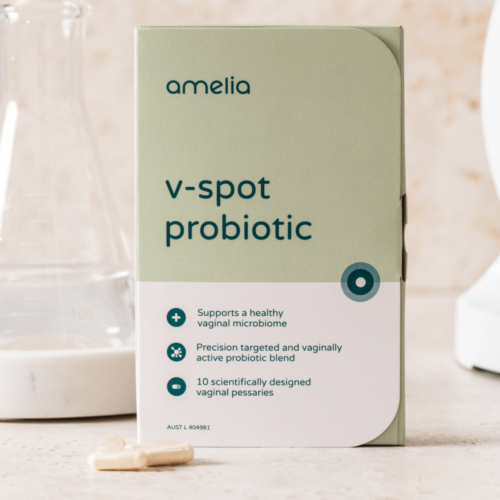The mini pill is a contraceptive pill that only contains a synthetic form of progesterone, called progestogen. Confusing, yes, but that’s how all hormone-based contraceptives are made, so that the companies who make them can patent their version of the hormone.
These hormones mimic the real hormone in your body, exerting the same effects. Each synthetic hormone molecule is slightly different (for the patents), which is why trying a few different types of pill can be useful if one doesn’t agree with you.
They are all slightly different, thus one may be easier on your system than another. The mini pill is low dose, but because of that, it must be taken at exactly the same time every day. It does not contain oestrogen, so can be used safely in women who do not tolerate oestrogen.
What is progesterone?
Progesterone is the hormone that, should you have a fertilised egg, would keep the developing cells alive before your body and the egg can attach themselves firmly (implantation) into the side of your uterus.
Progesterones have a lot of actions, including acting as an anti-anxiety, plugging up the cervix with thick mucous, and causing the lining of the uterus to become thinner, amongst others.
Progesterone is very much the pregnancy-supporting hormone. When you take synthetic progesterone, you are stimulating all these effects, which actually block a pregnancy from occurring.
The cervical mucous that becomes thicker blocks the passage of sperm, and the thin lining of the uterus means a fertilised egg can’t survive there very well. In some women, synthetic progesterone can stop you from ovulating altogether in some cycles.
Reliability of the mini pill
The mini pill is an excellent preventative form of contraception when the directions are followed to the letter. The failure rate is sitting at about one per cent for the mini pill, which is better than most other forms of contraception.
For every woman using the mini pill every year, one will become pregnant. Most failures are due to incorrect usage, with real-life failure rates being nearly 10 per cent, because we don’t always do it right all the time. This is human error, rather than a flaw with the mini pill itself. Younger, more fertile women have greater failure rates.
Pros of the mini pill
- Good for women who can’t take oestrogen-based pills
- During breast-feeding
- Have sex whenever you want without preparation
- Fertility quickly returns as soon as you stop taking it
Cons of the mini pill
- Must take the pill at the exact time every day or fertility returns
- Less effective than the combined oral contraceptive pill
- You need a prescription
- Some spotting or irregular bleeding may occur
- You can still catch sexually transmitted infections
- Can’t be taken by some women with some medical conditions
- Some medication can’t be used concurrently
Side-effects of the mini-pill
- Irregular bleeding
- Tender breasts
- Mood changes (possible)
- Headaches
- Bloating
- Acne problems
- Lowered sexual appetite (low libido)
- Nausea
What to do if you forget to take your mini pill
You have about three hours to take the missed pill, otherwise do a double dose the next day. Use other contraception, like condoms, until three pills have been taken over three days at the right time.
If you get sick with vomiting or diarrhoea, you may not have absorbed your pill, therefore it is like missing a pill. Use another form of contraception until your sickness resolves, and observe the three-day rule.
Specially formulated probiotic for vaginal application to promote a healthy vaginal microbiome.
Unique, comprehensive BV, AV and 'mystery bad vag' treatment guide, one-of-a-kind system, with effective, innovative treatments.





